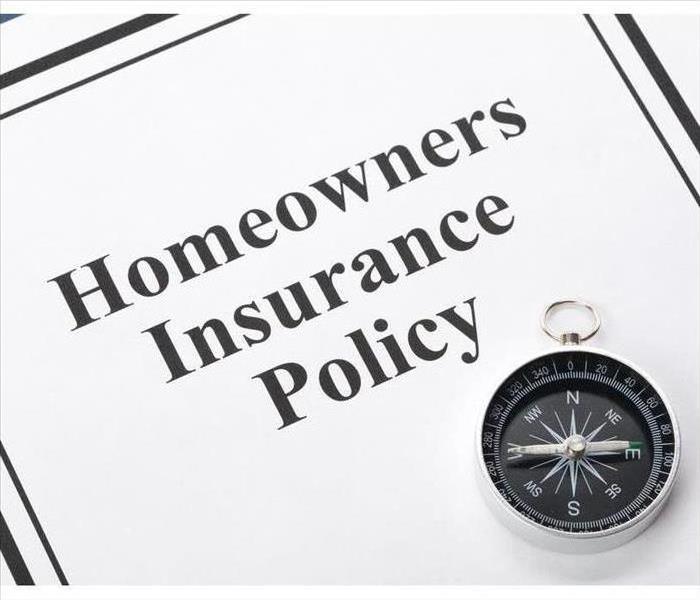Is Homeowners Insurance Coverage for Burst Pipes?
11/8/2022 (Permalink)
Homeowners Insurance and Burst Pipes
When it comes to frozen and burst pipes, you want to know that your home insurance policy will protect you from costly damage. However, not all policies cover the same things. To help you navigate what is and isn't included in your plan, we've put together this guide.
Frozen and Burst Pipe Insurance Coverage
In the winter, frozen and burst pipes can occur. If you have a pipe that bursts, it's important to know if your homeowners’ insurance will cover the damage. In many cases, it does—but it's not always clear what exactly qualifies as a "burst" pipe. Many people assume their homeowners’ policy should cover this type of damage but aren't sure what kinds of pipes are covered or whether there are any limitations on how much coverage they'll receive.
Preventing a Frozen Pipe
As with all things related to your home and belongings, prevention is key when preventing frozen pipes—and there are some simple steps you can take:
- Make sure that all exterior faucets are turned off during freezing temperatures so they don't freeze up (or use anti-freeze products).
- Be sure to check outdoor spigots regularly during cold weather months; never leave them unattended while in use!
- Also, keep outdoor spigots cleaner than indoor ones so they don’t clog up from dirt buildup over time (which also causes blockages).
- Insulate any exposed pipes in crawl spaces under houses.
Water Damage Insurance Coverage
Under the Water Damage section of your policy, you will find that your insurer covers water damage from burst pipes. A burst pipe is defined as a break in any part of the pipe system that transports water to or from a building.
If a pipe breaks, causing flooding and/or damage to property within your home or building, this is considered a covered claim under this section.
Examples of covered claims include burst water pipes (including frozen) Leaking toilets, overflowing bathtubs or sinks, and damaged sump pumps.
In addition to covering damage resulting from burst pipes and leaks, your policy also provides coverage for things like sewer backups and flooding if it happens outside (for example if there’s heavy rain).
Reasons for Frozen Pipes
There are several causes of frozen pipes. The first is that the water in your home may have been turned off, which will cause the pipes to freeze and burst. This can happen if you have a leaky faucet or toilet, and you forget to fix it. Another cause could be if there's a power outage in your neighborhood, causing all appliances that use electricity—including heaters and water heaters—to stop working.
If you've experienced any of these situations, it's important to act quickly to prevent damage from occurring further down the line. If you suspect that your pipes are frozen but aren't certain whether there's been any internal damage yet, make sure they're not leaking before calling an emergency plumber out so they can assess whether or not there's any risk involved in turning them back on again (e.g., electrical hazards). It's also vital that homeowners know what kind of coverage they have before making any repairs themselves. Identifying what type of plan works best for their needs will help protect them against future expenses related to damages caused by frozen pipes during winter months when temperatures drop significantly outside.
When it comes to frozen and burst pipes, insurance companies may have different policies on what is covered by your policy. It’s important to know what is and isn't covered so that you can plan ahead for an emergency. If you aren’t sure, call your insurance company and find out.
When a pipe bursts in your home or business, give SERVPRO of Williamsport/Montoursville a call! We will be quick to mitigate the water in your home, and get your Muncy property back to normal.





 24/7 Emergency Service
24/7 Emergency Service
